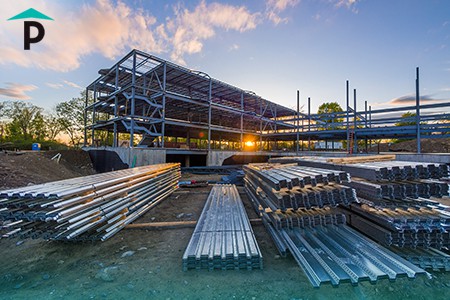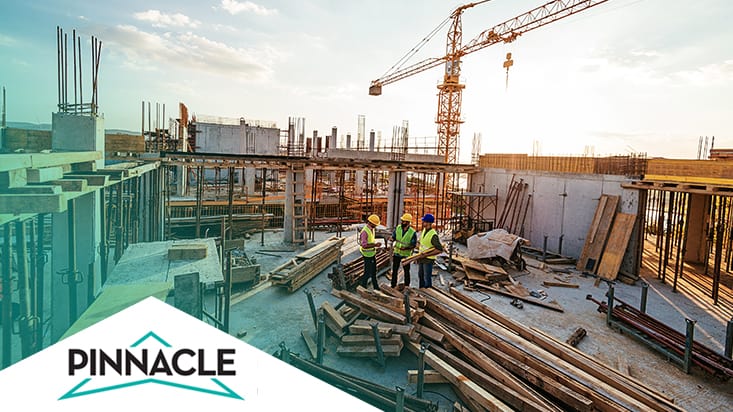A Site Development Bond (also known as a Subdivision Bond) is a three-party guarantee that Municipalities often require when an owner or developer wishes to redevelop a piece of land. To guarantee that the owner or developer will finish these improvements, whether the properties sell or not, the Municipality requires these bonds as insurance. In addition, a contractor and material supplier may be required to finish the improvements, pay for them, and guarantee their quality for a specific time. The Municipality may refer to this guarantee as a Developer Bond, Plat Bond, Completion Bond, or Performance Bond. Depending on the Municipality, surety bonds might also be known as Developer Bonds, Plat Bonds, Completion Bonds, and Performance Bonds. The principal is the owner or developer, the obligee is the Municipality, and the surety is the bond company.
Site Improvement Bonds
Developers, builders, or private individuals must post a site improvement bond to guarantee that subdivision work is completed correctly to a public entity. This bond guarantees that specific improvements will be made to the property as specified in the contract for the project. Subdivisions bonds are posted for new structures; site improvement bonds are posted for existing sites. Because there are so many complexities with site improvement bonds, SuretyBonds.com has created this quick and simple tutorial. In addition, a construction permit is often required as a condition of getting a construction permit for a specific project. This tutorial will help ease the understanding of site improvement bonds.
Completion Bonds for Construction
A completion bond for construction is an agreement between the developer or their construction lender that guarantees that the project will be completed on time and of the correct quality. To ensure that the project is completed as scheduled and that the project’s lender is safeguarded if the project is not completed on time, the construction lender issues a completion bond equal in amount to the loan once all the necessary building permits have been obtained and construction begins. The completion bond will finish the project if the project isn’t completed.
Labor and Material Bonds
 Labor and material bonds are referred to as payment bonds. A payment bond is a three-way contract between the contractor (principal), the property owner, and the surety, guaranteeing that all workers, suppliers, and subcontractors working on the project are fairly compensated. Sureties, who are licensed by the Insurance Department and other regulatory agencies to issue bonds in a state where the work is to be done, are required.
Labor and material bonds are referred to as payment bonds. A payment bond is a three-way contract between the contractor (principal), the property owner, and the surety, guaranteeing that all workers, suppliers, and subcontractors working on the project are fairly compensated. Sureties, who are licensed by the Insurance Department and other regulatory agencies to issue bonds in a state where the work is to be done, are required.
The payment bond protects the different stakeholders on a construction project by guaranteeing that the general contractor, or principal, will compensate them if he fails to fulfill his promise. In this bond, the surety will compensate these stakeholders in place of the general contractor if he fails to fulfill his promise.
Performance and payment bonds are often used together to guarantee that a contractor fulfills all of their contractual obligations within a specified time frame. In public construction operations, payment bonds take the place of mechanic’s lien claims, which cannot be filed against public property.
Construction Bonds: Performance, Bid, Payment Bonds
Construction bonds can be used to pay for the cost of construction, such as building a new home or infrastructure project. Construction bonds are also known as construction loans. Private companies often issue them, but banks and governments can offer them. The construction bond type is based on various factors, including the project’s purpose, the borrower, and the kind of lender.
 For example, bid bonds are issued by a contractor bidding on a job from a prospective buyer. Performance bonds are issued by a contractor who has already been awarded a contract and has begun work to ensure that the project is completed as promised. Finally, payment bonds are usually issued at the end of a construction project when payments have been made to contractors and materials suppliers.
For example, bid bonds are issued by a contractor bidding on a job from a prospective buyer. Performance bonds are issued by a contractor who has already been awarded a contract and has begun work to ensure that the project is completed as promised. Finally, payment bonds are usually issued at the end of a construction project when payments have been made to contractors and materials suppliers.
Construction bonds can also be financial instruments that allow investors to earn interest on their money. They can be used for various purposes, including funding projects that increase public safety or improve public health or infrastructure. However, they should never be used as an alternative to other financing options such as loans or mortgages. In addition, any government agency does not guarantee construction bonds, so if you cannot repay them in full when they come due, you would have no protection against loss in case of default.
Grading Bonds
Grading bonds are often issued with a performance guarantee to speed up the process of finalizing the project. A grading bond may also be required for contractors who are hiring subcontractors to help with the grading process. The grading bond guarantees that the subcontractor will grade the project properly. In the majority of cases, grading bonds are issued for the amount of the contract price. If a grading bond is not issued with a performance guarantee, the contractor may choose to purchase a completion bond. Completion bonds are usually issued for the total contract price.
Developer Bonds
Developer bonds are a type of bond that developers issue to raise money for the construction or development of real estate projects. These bonds typically pay investors a fixed amount of interest based on the amount of money they invest, regardless of what happens to the property’s value. Because of this, developer bonds are different from traditional debt in several ways. For starters, developer bonds usually have longer terms and higher interest rates than standard short-term debt. In addition, investor risk is much lower with developer bonds because the property’s value can’t decrease during the term. As such, investor risk is much lower with developer bonds than with standard debt. Because these benefits exist, it’s no wonder why so many people choose to invest in developer bonds over traditional debt.
Conclusion
Surety bonds have a long history and are an essential part of the construction industry. The benefits of owning a surety bond will make you more money in the long run by protecting your business against potential loss. Surety bonds are surety agreements where a surety guarantees to make good on a contract on behalf of the principal, who is often acting as a contractor. They may be used to protect builders against any potential financial loss or litigation.


